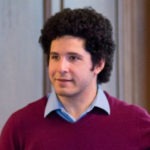How do we know stuff about matters of fact that we have yet to observe? For example, how do I know that the sun will rise tomorrow? A natural answer is that we have this knowledge through induction: I know the sun will rise tomorrow, because it has risen every day in the past. Now, the philosopher David Hume recognized that this inductive reasoning assumes that the future will resemble the past. Why though think that this assumption is true? How do we know that the future will resemble the past? This question is the starting point for Hume’s skeptical argument against induction (and his skeptical solution), which Daniel Greco lays out in detail in this video.




